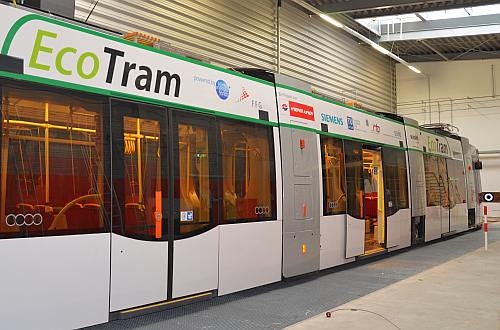The research project was launched in 2009 and is being led by the Technical University of Vienna (TUW) with the support of Siemens, Vossloh Kiepe, Rail Tec Arsenal, Wiener Linien, and Schig, and is being funded by the Austrian Research Promotion Agency (FFG) through its New Energies 2020 programme.
The low-floor vehicle is equipped with three new air-conditioning units with heat pumps, a variable-frequency compressor, and CO2 sensors. Intelligent control units determine when and where heating will be required according to the ambient temperature.
According to TUW, the average annual energy saving per vehicle could be as much as 100,000kWh, meaning that if the technology was applied over Wiener Linien's entire fleet of 300 ULFs it could save 3000MWh per year and reduce CO2 emissions by 600 tonnes.
In the first phase of the project the unmodified ULF vehicle was tested in the Rail Tec Arsenal climatic chamber in Vienna, and the same measurements were taken again after the modifications had been completed. These tests studied the inlet temperature for the air-conditioning system, air current flows inside the vehicle, and the effects of heat and moisture generated by passengers.
The vehicle is now being tested under real operating and environmental conditions, running in passenger service on Line 62 between Kärntener Ring and Opera House. This phase of testing is due to continue until May 2014 and will allow EcoTram to study load-dependent effects on the performance of heating and cooling systems.

